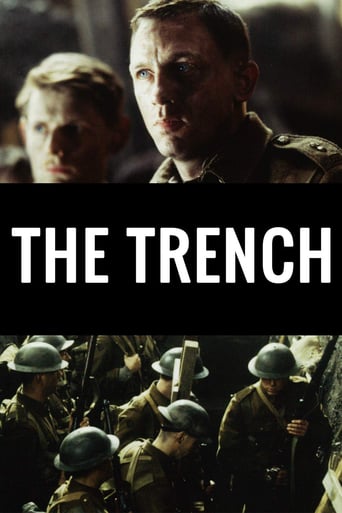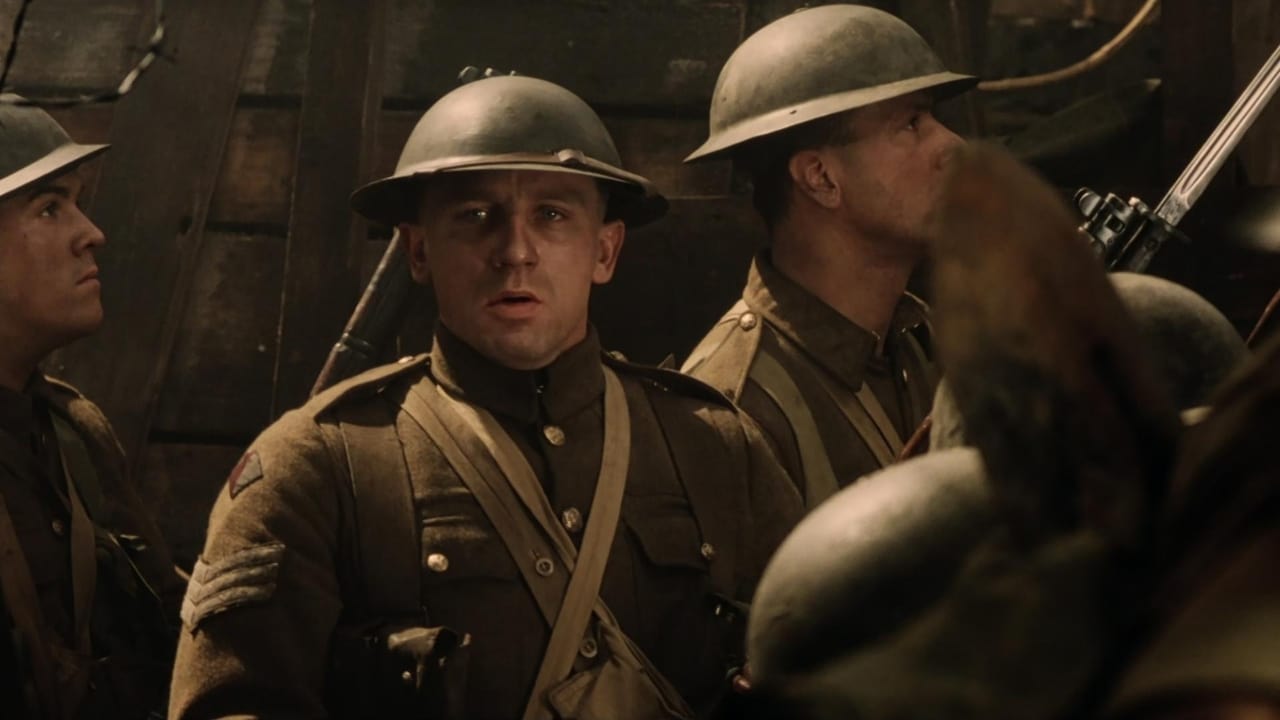PWNYCNY
This movie is an excellent dramatization of what it must have like to be a soldier in the trenches on the Western Front prior to a major attack. The waiting seemed interminable, which added to stress of knowing that you may be killed. The movie shows that the soldiers really have no idea why the war is being fought. Unlike World War Two, which was ideologically driven, World War One was fought for reasons that are less clear. This movie provides a microcosm of what the conditions were all along the front. The trenches (at least those dug by the British), were little more than extended fox holes, intended for temporary use only. That soldiers were required to stay days and even weeks in those mud pits is appalling, yet true. That the British soldiers put up with these conditions with mutiny, unlike the French soldiers, is a testament to their discipline and loyalty. Tragically, for many, it was not enough to save their lives. As the movie shows, once in No-Man's Land, the bullets from the enemy machine guns did not discriminate as to their targets. Plans can go wrong, and this movie they go grievously wrong.
dbdumonteil
"The trench" is a missed opportunity.Life in the trenches in WW1,as depicted by the many letters the soldiers sent to their families,was really a living Hell,so it was possible to make a fantasy and horror movie from this subject.That's what Abel Gance did with his masterpiece "J'accuse" (1918 and 1938) when he showed the victims rise from the dead."The trench" succeeds in recreating a gloomy nightmarish blue-green atmosphere ,but is short on screenplay.The story is never really interesting and there is worse: the director is incapable of creating characters we could care for,which is a shame,when it deals with martyrs of WW1 .
stanistreet-2
My father served in both World Wars and I never heard him swear. If his meal was not on the table on time, he might say "Confound it..." or, if he hit an unexpected set-back, he might say "Blast". Yet, in his book, "A Long Long Way", Sebastian Barry's main characters, in the trenches in Belgium, swear almost continuously, using all three *bleep* words - f,s & c. He also pointed out that the platoons were made up of soldiers from the same regiments. I never heard my father talk about WW1. He won the MC and his citation refers to his "extreme bravery in the face of enemy fire". I would love to have had a chance to talk with him about the war, but it was never mentioned. He was invalided out with shell-shock and had a piece of shrapnel lodged somewhere - again I was never told the precise location. Such was the tight lip attitude of serving officers who survived the trenches. Surprisingly, after a brief spell in the Civil Service, he re-joined the Army and served in India. Because he spoke fluent French & German, having spent a year at school in, of all places, Belgium, he was recalled sometime later & served on General de Gaulle's staff in London, doing liaison work with the French underground. We moved to Ireland, in 1948, where he spent the rest of his days. Quite recently an old friend of his, Cecil Lidell was mentioned in an article about his brother, Guy Lidell, a spy master.I remember Lidell, whom we called Little Cecil, and I also recall John Betjeman calling. He was interested in church architecture & the three of them use to visit a local Anglican church. William Boyd, possibly the best writer in the English language today, when discussing his latest novel "Restless" posed the question of what one might do if one found out that one's father had been a spy. I can only wonder! Particularly as my parents played bridge with both the Polish & Belgium ambassadors, who were neighbours. (Ireland's PM, Mr. de Valera, was regarded with suspicion by the British, particularly when he signed the Book of Condolences, at the German Embassy in Dublin, when Hitler committed suicide). Lots of local material for a spy? Alas, I shall never know, but I could always try and write a fictional story, just as William Boyd did. Some of the material is there. Such is the stuff of dreams.
noralee
I went considerably out of my way to be the only woman in the theater to see "The Trench" from Britain, a conventional continuation of the British obsession with World War I as being the most symbolic war. Not much new here that wasn't in "All Quiet on the Western Front" or "Paths of Glory" or "Gallipoli", but I suppose some lessons need illustrating for new generations. Taking place claustrophobically in the trenches just prior to the bloody Battle of the Somme with the sounds of war all around--though it could also have been taking place in the canals of Mars against aliens-- the characters are typically class-based Brits (from ineffectual aristocratic officer to working class blokes whose conversations need subtitles for American viewers), but manage to stay above stereotypes through excellent acting (with actors familiar to us from PBS's "Mystery" and "Masterpiece Theater") and personalization.I'm probably the only one other than Daniel Craig's family (and the webmasters at his fan site) who went to see the movie for him, but his career soldier sergeant in particular is a real human being.Otherwise, as always with ensemble war movies, I have trouble telling the young guys in uniform apart to keep the characters straight.(originally written 12/2/2000)



 AD
AD




